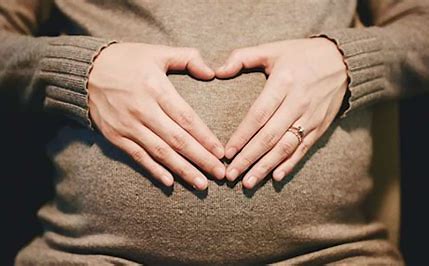
Introduction
Pregnancy is a beautiful journey, but it often comes with uncomfortable symptoms like morning sickness. For many expecting mothers, nausea and vomiting can be debilitating, affecting daily life and overall well-being. While medications are an option, many seek natural remedies like acupuncture for relief.
But does acupuncture really help with morning sickness during pregnancy? Research and countless testimonials suggest yes. In this article, we’ll explore:
- What acupuncture is and how it works
- Scientific evidence supporting acupuncture for pregnancy-related nausea
- Key acupuncture points for morning sickness
- Safety considerations
- Additional acupuncture benefits during pregnancy
By the end, you’ll have a clear understanding of whether acupuncture could be the right solution for your pregnancy symptoms.
What Is Acupuncture and How Does It Work?
Acupuncture is a traditional Chinese medicine (TCM) practice that involves inserting thin, sterile needles into specific points on the body. These points, known as acupoints, lie along energy pathways called meridians. The goal is to restore balance in the body’s energy flow (Qi) and stimulate natural healing.
How Acupuncture Helps With Morning Sickness
Morning sickness, which affects 70-80% of pregnant women, is often linked to hormonal changes, particularly rising hCG and estrogen levels. Acupuncture may help by:
- Regulating digestive function – Certain acupoints influence stomach and spleen meridians, reducing nausea.
- Balancing hormones – Studies suggest acupuncture can modulate serotonin and cortisol levels, which impact nausea.
- Reducing stress and anxiety – Stress exacerbates morning sickness; acupuncture promotes relaxation.
A 2020 study in BMJ Open found that women who received acupuncture reported significantly less nausea and vomiting compared to those who didn’t.
Scientific Evidence: Does Acupuncture Really Work for Morning Sickness?
Multiple studies support the effectiveness of acupuncture for pregnancy-related nausea:
- A 2015 Cochrane Review analyzed 20 trials and found that acupressure (a non-needle alternative) reduced nausea severity.
- A 2021 study in Obstetrics & Gynecology showed that electroacupuncture (a mild electrical stimulation technique) significantly decreased vomiting episodes.
- Research from the Journal of Maternal-Fetal & Neonatal Medicine reported that acupuncture was as effective as vitamin B6 (a common anti-nausea remedy) but with fewer side effects.
These findings suggest that acupuncture is a viable, drug-free option for managing morning sickness.
Key Acupuncture Points for Morning Sickness Relief
Licensed acupuncturists often target specific points to alleviate nausea. The most commonly used include:
1. Pericardium 6 (P6 or Neiguan)
- Location: Three finger-widths above the wrist crease, between tendons.
- Effect: One of the most researched points for nausea relief. Stimulating P6 can reduce vomiting frequency.
2. Stomach 36 (ST36 or Zusanli)
- Location: Below the knee, one finger-width outside the shinbone.
- Effect: Strengthens digestion and reduces fatigue.
3. Ren 12 (Zhongwan)
- Location: Midway between the belly button and sternum.
- Effect: Calms stomach discomfort and regulates digestion.
Many clinics also offer acupressure wristbands (like Sea-Bands), which apply pressure to P6 for continuous relief.
Is Acupuncture Safe During Pregnancy?
Yes, when performed by a licensed acupuncturist, acupuncture is considered safe during pregnancy. However:
✔ Avoid certain points – Some acupoints (like SP6 and LI4) may stimulate contractions and should be avoided until full term.
✔ Choose a certified practitioner – Look for someone experienced in prenatal acupuncture.
✔ Consult your OB/GYN – Always check with your doctor before starting any new treatment.
The American College of Obstetricians and Gynecologists (ACOG) recognizes acupuncture as a low-risk complementary therapy for pregnancy symptoms.
Additional Acupuncture Benefits During Pregnancy
Beyond morning sickness, acupuncture can help with:
1. Lower Back and Pelvic Pain
- Relieves tension and improves mobility.
2. Stress and Insomnia
- Promotes relaxation and better sleep.
3. Breech Baby Positioning
- Moxibustion (a heat therapy used with acupuncture) may encourage optimal fetal positioning.
4. Labor Preparation
- Some studies suggest acupuncture can shorten labor duration and reduce interventions.
Final Thoughts: Should You Try Acupuncture for Morning Sickness?
If you’re struggling with severe morning sickness (hyperemesis gravidarum) or simply want a drug-free remedy, acupuncture is worth considering. With strong scientific backing and a high safety profile, it offers a natural way to manage pregnancy discomforts.




